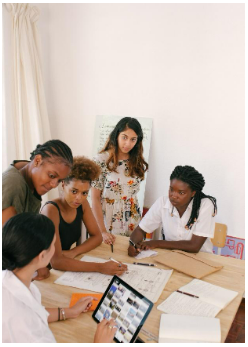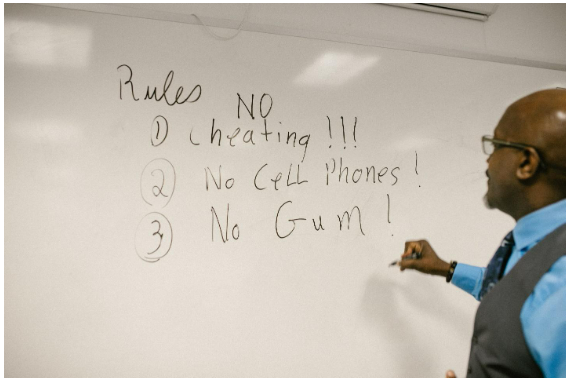
Academic honesty is a requirement for all students in higher education. This means that you are expected to be honest in all aspects of your academic work, including but not limited to submissions, examinations, and papers.
There are many forms of academic dishonesty, but one of the most common is collusion. Collusion occurs when two or more students work together on an assignment or project without the knowledge or permission of the instructor. This can be done in person or online, and it often takes the form of copying someone else’s work or allowing someone else to copy your work.
While collaboration is often encouraged in academic settings, it is important to make sure that you are only collaborating with other students who are also aware of the rules and expectations regarding academic honesty. If you are unsure whether or not your collaboration is considered collusion, you should always err on the side of caution and seek clarification from your instructor.
What is considered ‘Collusion’ in the academic setting?
Collusion can be done by two or more students or a student might subscribe to contract cheating services online. It is considered collusion if:
- Two or more students worked together on an assignment without the knowledge or permission of the instructor.
- A student copies another student’s work or allows someone else to copy his/her work.
- A student uses unauthorized materials during an examination.
- Students ask questions and share answers with each other using chat groups or messages during an online exam or quiz.
What is considered ‘Legitimate Cooperation’ in the academic world?

Legitimate cooperation is defined as two or more students working together on an assignment with the knowledge and permission of the instructor. This type of collaboration is often encouraged in academic settings as it can help students learn from each other and create a more cohesive learning experience.
Some examples of legitimate cooperation include:
- Working together to brainstorm ideas for an assignment
- Discussing concepts from class with a fellow student offline or using social media groups
- Reviewing each other’s drafts of an assignment
- Asking for references for resources a student can use for an upcoming assignment from a senior to research and investigate the topic better
- Collaborating on a group project where all the participants research, write and work on their part of the project.
As long as the instructor is aware of the collaboration and has given permission for it to take place, legitimate cooperation is not considered academic dishonesty.
There are serious consequences for academic dishonesty, collusion, or contract cheating. And they are not limited to a lower grade for the assignment or project, a failing grade in the course, and a notation on your academic record. In some cases, you may even be suspended from school. International students who are found to be academically dishonest may also have their visas suspended and be deported from the country.
How to prevent collusion?

Sometimes, collusion is unintentional. For example, two students might start working on an assignment together without realizing that they are not supposed to be doing so. In other cases, collusion is done deliberately to gain an unfair advantage. Either way, it is important to be aware of the rules and expectations regarding academic honesty to avoid unintentionally or intentionally engaging in collusion.
According to TutorHelp.Club experts, you can avoid the risk of collusion in the following ways:
- Read the syllabus carefully and make sure you understand the rules regarding academic honesty for the course. If you are unsure about anything, ask your instructor for clarification.
- Pay attention to how your instructor structures assignments and projects. Make sure you understand what is expected of you before beginning work on an assignment.
- Discuss the expectations for academic honesty with your classmates. Make sure everyone is on the same page regarding what is considered acceptable collaboration and what is not.
- If you are working on an assignment with another student, make sure you keep a record of who did what. This will help to avoid any confusion later on if there are questions about the division of labor.
- Keep your work separate from the work of your classmates. This will help to prevent the accidental sharing of information or ideas.
- If you are using sources from the internet, make sure you cite them properly. Giving credit where it is due will help to avoid any accusations of plagiarism.
- Plan your assignments and exams well in advance. This will give you more time to work on them and less temptation to cut corners by collaborating with others.
- If you have a study group, make sure that everyone is clear on the ground rules regarding collaboration. Establishing these guidelines at the beginning will help to avoid any problems later on.
- Never share your assignments through swap sites or social media even after you submit them.
- If you are finding an assignment difficult, seek help in learning more about the topic or relevant research, writing, and other skills, instead of asking someone to do it for you.



0 responses on "Legitimate Cooperation or Collusion: Are You Being Academically Honest or Not?"